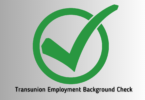Nursing professionals need background checks to keep healthcare facilities safe and secure for patients, staff, and visitors.
Whether you’re a medical institution or a nursing staffing agency, you must ensure that your nurses are trustworthy and qualified professionals who will provide the care needed to keep your customers safe.
Here is a complete guide on a background check policy for nurses, from what elements these checks should include to which sources to be used!
By the end of this article, you’ll have a solid understanding of nursing background checks and be able to make informed decisions about running them.
What is a Nursing Background Check?
When it comes to healthcare, nothing is more important than a patient’s safety and well-being.
So it’s no surprise that nursing background checks are necessary for all nurses in the U.S.
This ensures that only qualified, experienced, and trustworthy individuals care for patients.
A nursing background check is an in-depth screening process that covers various aspects of a nurse’s professional past.
It includes evaluations of criminal records, educational credentials, employment histories, and license verifications.
This data offers employers valuable insight into the individual before joining the team.
Nursing background checks help employers ascertain whether a nurse has any potentially disqualifying criminal history.
It also helps to check for discrepancies between stated qualifications and actual qualifications that could threaten a patient’s welfare.
Additionally, they provide helpful information on an individual’s history and possible points of reference should any problems arise.
Ultimately, they can help strengthen an organization’s commitment to quality care.
The Components of a Nursing Background Check
For background checks for nursing professionals, there are a few different components to consider.
You need a comprehensive background check covering all the bases to ensure that you hire the most qualified and competent nursing staff.
Here’s what you should know about the components of a nursing background check:
Criminal Records
Criminal records are often the starting point for any background check. This search is done at state and federal levels and includes various resources, including court records, arrest records, and criminal convictions.
Not all criminal records will be reported, so it’s essential to double-check with local law enforcement regarding an applicant before employment.
Education Verification
Detailed education verification is essential in ensuring applicants possess the appropriate credentials and licenses to practice in their respective fields.
This verification can be done through official documents such as school transcripts, degree certifications, and other certificates associated with educational or training programs they may have completed.
Employment History
Employment history checks provide insight into an applicant’s work history and experience level by verifying their past employers, dates employed, job title(s), and reasons for leaving former positions.
It’s important to note that this process may require additional screenings outside the traditional background check if an applicant has worked overseas or in multiple states.
These elements comprise a comprehensive nursing background check, so ensure your process covers them all!
Who Conducts Nursing Background Checks?
It’s important to know who conducts a nursing background check, and the answer is that it can vary depending on the employer and their preferences.
Generally, third-party companies specializing in this type of service, such as Verified Credentials or GoodHire, conduct background checks.
These companies are experts in managing background checks and have access to public records databases and databases from other countries if needed.
Furthermore, they do all the legwork for you — they’ll verify education credentials, criminal history records, and professional licensure.
They may also use other screening methods like drug testing or reference checks.
By having a third party handle the process, nurses can rest assured knowing that their background check is conducted ethically, with no discrimination against applicants.
Plus, companies like Verified Credentials follow up with employers to ensure no adverse action is taken against applicants based on their background check results.
Laws and Regulations for Nursing Background Checks
Background checks are an essential part of the hiring process for nurses, as they help ensure patient safety and provide employers with peace of mind.
But did you know that there are laws and regulations to govern the practice of conducting background checks on nursing candidates?
In the United States, background check requirements are governed by state laws.
This means the rules can vary from state to state, so you must know any specific laws or regulations in your area before initiating a background check.
Common areas where legal requirements may apply include:
- Types of records to be checked (e.g., criminal, driving, education)
- Disclosure requirements (e.g., informing candidates about the background screening process)
- Reporting requirements (e.g., reporting results within a specific timeframe)
- Use of databases (e.g., whether specific databases can be used for certain types of checks)
It’s also essential to ensure that all steps related to conducting the background check are conducted in compliance with applicable laws, such as The Fair Credit Reporting Act (FCRA).
Moreover, make sure you understand what types of records should be checked, which databases can be used, and how information must be reported to maintain compliance with applicable laws and regulations regarding nursing background checks.
How to Prepare for a Nursing Background Check
Nursing background checks can seem intimidating, but they don’t have to be. In fact, with the proper preparation and knowledge, you can take control of the process and show that you’re the ideal candidate for the job.
Have Your Documentation Ready
Preparing is one of the most essential steps in any background check process. Gather documents that prove your identity, such as a driver’s license, passport, or social security card.
You must also provide specific documentation proving your credentials as a nurse.
This could include your nursing renewal/license from your state board of nursing and evidence of any continuing education courses you have taken.
Understand Possible Background Checks
When it comes to a nursing background check, employers may look at different elements like:
- An employment history search
- verification of education and certifications
- Licensure status and verification with the state Board of Nursing
- Criminal background checks at the federal, state, and county level
- Credit report search
- Recommendation letter or references
Having all this information ready before starting the background check will ensure it runs smoothly.
Also, remember that what employers seek when conducting a background check may vary depending on their specific policies or needs.
Some employers require only a criminal record check, while others require credit report searches or professional references.
Knowing which background checks an employer’s job listing needs will help prepare for the plunge.
Tips for Passing a Nursing Background Check
Conducting a nursing background check is an essential step in ensuring patient safety.
Here are some tips to help you pass a nursing background check with flying colors:
1. Complete all paperwork correctly and on time
Be sure to complete all the required paperwork, and submit it correctly and on time. Failing to do so could delay or even prevent you from being accepted, and no one wants that.
2. Be honest, open, and accurate
When filling out the paperwork, don’t skip any questions or mislead. Make sure that everything you say is truthful, open, and accurate.
Questions will be asked about your background, so you must provide accurate information and be honest about anything questionable.
3. Provide references when necessary
Some employers may request references from past employers or colleagues to prove your qualifications or criminal record checks.
Be sure to provide accurate contact information for these references if necessary.
Knowing the details will give you peace of mind and ensure a smooth process for everyone involved!
Easiest State to Apply for NCLEX for Foreign Nurses
If you’re a foreign nurse, knowing your options and navigating the nursing licensure process in the U.S. is essential.
The National Council Licensure Examination (NCLEX) is the first step for foreign nurses wanting to practice in the U.S.
California and Florida are at the top of the list for states that are the easiest for foreign nurses to apply for NCLEX.
In California, foreign nurses can apply through the National Council of State Boards of Nursing or directly from the California Board of Nursing using an online application form.
In Florida, foreign nurses must use an online application form provided by Pearson VUE, which is where they will take their NCLEX exam.
Once you have finished your application and taken your exam, you’ll need to complete a background check before continuing your nursing career in the U.S.
Knowing ahead of time which states are most accessible for foreign nurses to apply for NCLEX can help make this process smoother and easier so you can get your license faster!
Conclusion
Background checks are essential for nurses and other healthcare professionals to protect patients and institutions.
To ensure that nurses pass the background checks, they must carefully and accurately fill out the forms and submit any documentation required.
Furthermore, nurses and healthcare employers must remain vigilant and up-to-date on the laws and regulations that govern background checks.
They should also consider investing in a secure, compliant background check platform to streamline the process and ensure accurate results.
Nurses and healthcare employers must work together to ensure that they both understand the importance of background checks and the legal and ethical implications of engaging in the checks.
With proper due diligence and expertise, background checks can be a valuable tool for protecting patients and institutions.






